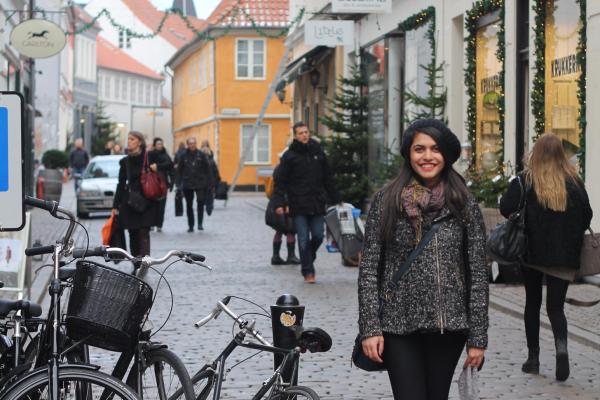"Hola guapa!"
"Ay, gua quapa."
"Guapi."
"Mira, guapa..."
"Guapísima!"
Don't worry, don't be alarmed. It's probably just coming from the abuela (grandmother) across the street.
When the phrase “beauty standards” are thrown out there, the immediate reaction is women: face, body, weight, complexion, size. Every culture has their own standards for what is beautiful, and Spanish culture is famous for not keeping quiet about what they find attractive. Though it's crucial to distinguish between Spanish society and culture and Latin society and culture, the word "guapa” ("beautiful") can be heard reverberating throughout many countries.
Though the male gaze and subjection of women to ideals may immediately be associated with the word, in Spanish society, it is virtually genderless and just plain fact; Spaniards live in a "guapa" world. When surrounded by such natural and constructed beauty, don’t you yourself want to be beautiful? A piece of work to reflect the artistry of every corner?
When surrounded by such natural and constructed beauty, don’t you yourself want to be beautiful?
Yes, occasionally men will call out "guapa" while you are simply taking out the trash or running for the bus (when the last thing on your mind is the way your face looks). But step into the supermarket and watch grown men hold each other’s face while gutturally and lyrically greeting each other with the word: "Oye, Guapo!" Walk into the plaza, and watch parents and children interchange the word in a game-like manner. Gaze upon the comments section of any Facebook photo and try to count the number of times the words "guapa," "guapi," or "guapísima" are used.
Go a little deeper and notice the young couple in the park, the old couple in the park, any couple in the park, and you're bound to be subjected to a PDA. Showing emotion—the raw want—is guapa. On a blistering hot not-quite-summer-day, go for a swim in a public pool, and find at least half the women nude from the top up. Breasts and cellulite are guapa.
Last but not least, wander into the Chueca neighbourhood of Madrid, the “gay neighbourhood,” where the act of being itself is guapa. In 2005, Spain was one of the first nations to legalize gay marriage and such openness has extended upon their standards of beauty. This past June, Madrid was the host of EuroPride (or WorldPride) 2017, an event marking 40 years of LGBTQ activism in the country. During the festivities, and the grand finale, the parade, drag queens could be seen dancing next to families with small children. To "viva la vida" in any way, is simply guapi.
I personally loved being greeted throughout the day as "guapi" by people who I didn’t know, by strangers. Even if that stranger was the man holding the door for me with his wife visibly next to him. Calling people beautiful at first sight is a strong, but perhaps an effective way to bridge a gap between strangers, especially international strangers. An instant connection is formed, where yes, you feel immediate acceptance because a certain beauty is confirmed. However, it is more of a welcome—a hello—to a beautiful, confident lifestyle.
Foreigners may not be used to this. They may take it as scrutiny of their outward appearance or of subjection to beauty standards which conform to a sole idea of beauty. The Spaniards do like to believe that they are beautiful people, however, it's more. It's revelling in the good life and in love for one another. It's Chueca, it's cute dog outfits; it's men admiring and tenderly touching each other; it's argumentative; it's pride and it's acceptance.
We all know beauty is not enough, but guapa certainly is satisfying.
Add this article to your reading list




